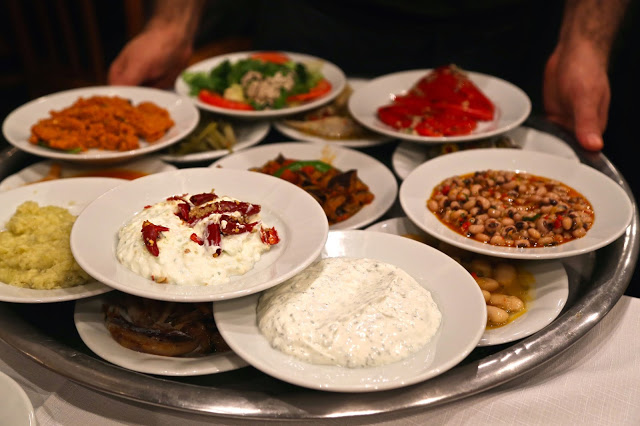
I finally figured out how to buy an Istanbulkart, the transport card. Where do you buy an IstanbulKart? A chestnut seller, of course. He pulls one out from under the neat pyramids of chestnut shells criss-crossed open with a knife, the yellow brains of sweet fudgy flesh emerging from the brown petals, tempting the passerby, smouldering on the charcoal. Winter treats.
In the metro, a young man talks to me and says he will show me the way to the blue mosque. I am wary. I’ve heard about Turkish men. They are so weird/desperate that they sleep with 70 year old European women. I’m not yet 70 but I feel very uncomfortable being chatted up by a man in his 20s because Madonna. My mind wanders: how can she go out with those young boys? Does she really think that they love her and not her fame or money? And then I think about all the old men that go out with young women and I ask, how can they bear it? Heroic levels of self-delusion.
We have to change trains and we meet one of the Turkish boy’s friends, a Swedish woman with bright cornflower blue eyes and a vivid blue spot on her cheek.
Later, in the blue mosque, which isn’t blue, the Turkish boy says he is not a devout Muslim because he has tattoos. I didn’t know that was a thing, haraam. Then I say ‘you have a tattoo’ to the Swedish woman. She says, ‘No. I got this three years ago. I just woke up one day and I had a turquoise blue spot on my cheek. I thought I was dying. But it’s fine.’
‘Maybe you are royal,’ I remark.
The Turkish boy starts to irritate me with his clumsy flirting, which consists of elbowing me in the side and winking. He no doubt thinks this is alluring, but it’s more akin to Tourettes. He keeps photobombing all of my photos. Turks are obsessed with selfies. In fact, everyone is. Even when people are praying they are taking selfies… sometimes with a selfie stick.
Having ‘lost’ the Turkish boy, I trudge to the Grand Bazaar where I buy six hammam towels for 120 Turkish lira (about 35 quid) because I’ve decided to convert from towelling to cotton and linen because a) it’s cooler/trendier and b) it takes up less room in the washing machine. (I got this from my mum. She has a total neurosis about filling up the washing machine. She says if you put too much in it breaks and doesn’t wash properly. But her idea of ‘too much’ is one big towel on its own.)
Time for a hammam bath, scrub and massage. Fat ladies with EXACTLY the same body as me are a comfort when suffering from self-loathing and internalised misogyny. They introduce themselves with a smile then make you lay down on a marble altar under a pink concrete dome punctured with stars and planets leaking in navy daylight. They scrub you with a rough linen hand mitt all over. Next, they fill a pillow case with soap and cover you in foam. Their strong hands snap each one of your fingers. The mitt scratches your uterine scars, your stretch marks, your dimpled buttocks, wobbly thighs and digs into your stiff shoulder blades. ‘You stressed, yes?’ Then a frown and a slam of the heel of the hand onto the offending part. ‘This very hard.’ They throw buckets of water over you. They beckon and tell you to sit on a marble step while they wash your hair. You feel as helpless as a baby.
The wind from the Bosphoros blows you uphill, like Mary Poppins. Everyone is wearing dark coats, flapping in the gusts, and head scarves. The scene could be a black and white movie.
I drink sahlep in a cafe jumbled with books and jazz. Sahlep is made from wild orchid tubers, ground up into flour. The Turks make a wintery hot drink from this, a kind of sticky Horlicks, freckled with cinnamon.
The sunset is grey. The moon is nearing full.
I meet Roshni and we drink double rakis, gazing as the anethol refuses to dissolve in water, turning cloudy. If you watch closely, you can see the oily molecules coagulate, like a 1960s lava lamp.
We go to Refik, a famous restaurant in Galatas off the way from Istisklal Avenue, the mile-long main shopping drag, strung with Christmas lights, as busy as Oxford St. We are surprised to find our two chairs side by side not facing each other. We find out why when the waiter brings an enormous tray, arm span wide, and rests it on the other side of the table, facing us. It is loaded with white china plates of meze: roast red peppers with toothy sprinkles of garlic; slick dishes of yoghurt, palest blush of tarama, a rough ochre of salsa ‘esme’; giant flesh coloured beans ‘fava’ laying nude and limp in parsley flecks, coils of pickled anchovy encircling green olives speared on cocktail sticks. The waiter shuffles these plates, piled two stories high, like playing cards. ‘You want this?’ ‘Or this?’. Clink chink.
‘That,’ we point. He doesn’t rummage, because the system is so organised. He moves the plates around, up down, around, like a Rubrik’s cube.
In the end we choose five plates, more raki.
The tarama is like no taramasalata I have eaten before. Because it is so unashamedly bready. Usually the bread is processed, smoothed out, disguised. Here you can see the texture so clearly, there is a crumpety mouthfeel. It is delicious.
I’m disappointed that he gives us western bread not flatbread and the other dishes aren’t great. The esme lacks salt and lemon; the beans need garlic. ‘I’ve had these better elsewhere,’ says Roshni. We pay 80 turkish lira (just over 20 pounds) and leave.
In the main street we taste elastic icecream, sold in brightly coloured slices stacked up on a cornet. A vendor plays a game with purchasers, making them ‘catch’ the ice cream as he plays hide and seek with the cone, ringing bells above his head with the icecream tool, a long metal stick.
I want to try borek or filo pastry, but not the ordinary borek of spinach, cheese or meat… water borek. We find an open ‘Borek Centre’; he has one portion left. This buttery sheep cheese ‘lasagne’ blows my mind. It’s a Food Moment. We are on the very edge of Europe, looking over at where Asia begins. The silk road, the journey of pasta from China to Europe, passes by here, turning flour and water, which is paste, which became pastry, which in turn became pasta.
Water Borek or Su Boregi is filo pastry boiled briefly, like fresh pasta. It is drained before being layered into a baking pan with a filo pastry base. The pastry is wrapped around the water borek and baked.
I drink ayran, a mildly salty yoghurt drink similar to lassi. Roshni, who is from Bombay, can understand some Turkish, when the words are similar to hindi; peyneer is paneer, cheese for instance. There are Persian roots to both languages.
She also uses her iPad: google translate will not only find your phrase but, if you hit the speaker symbol, it will speak for you. You can talk to anyone if you have wifi.
I buy pistachio chocolate on the long climb to my hotel.
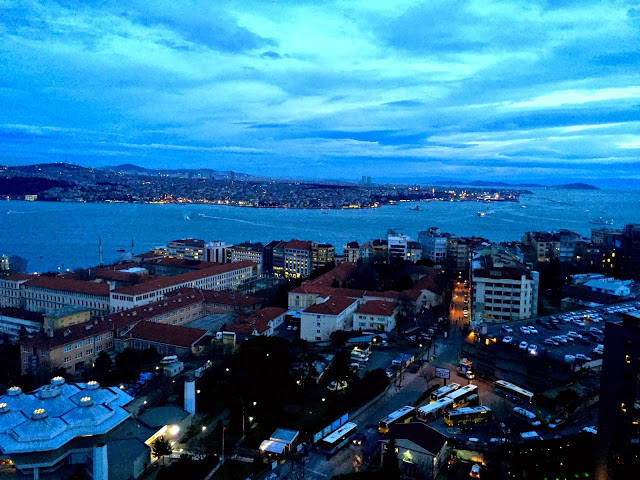
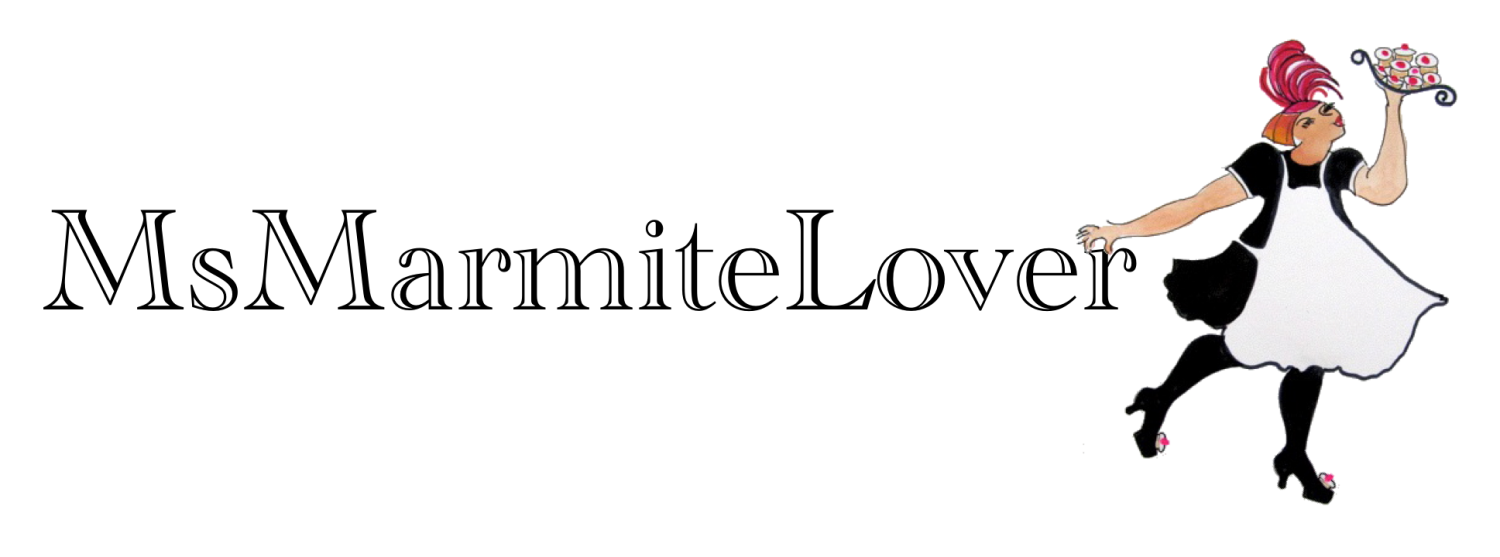
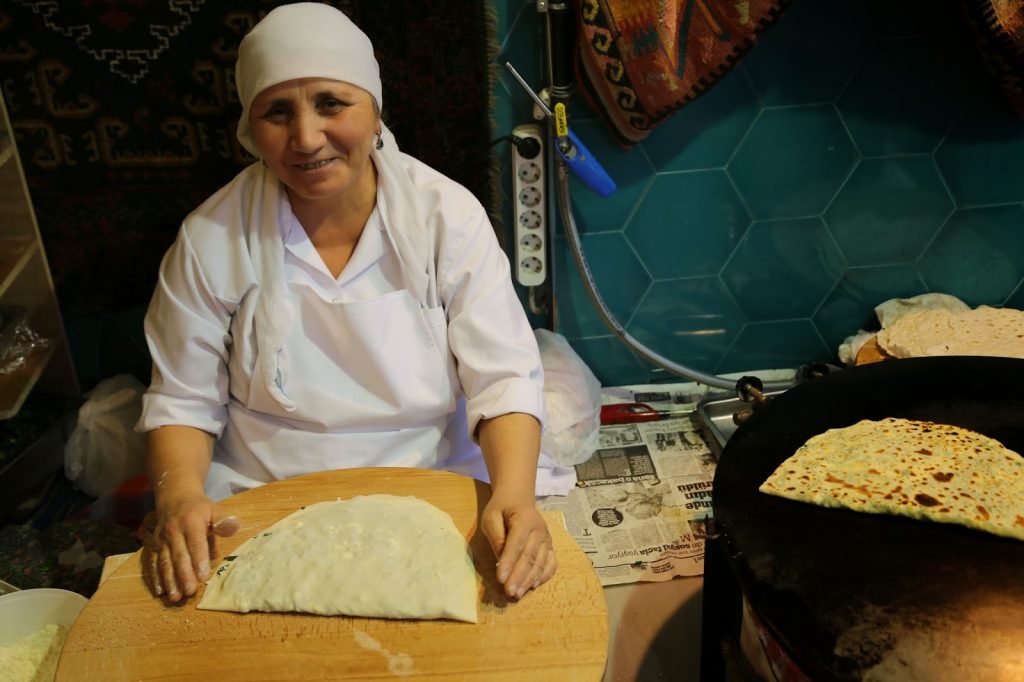

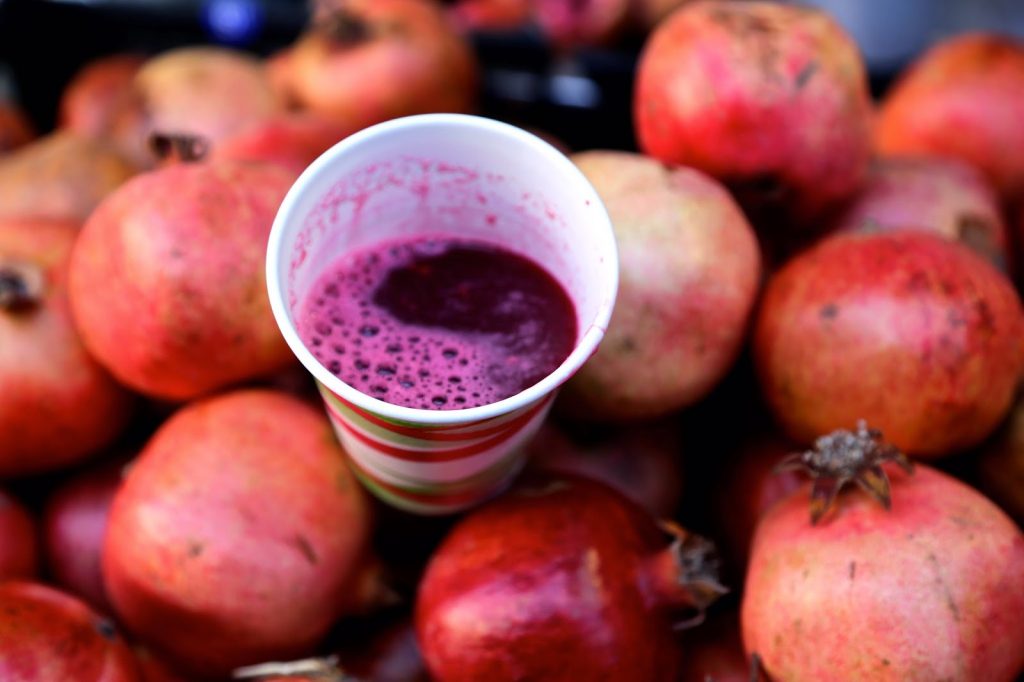
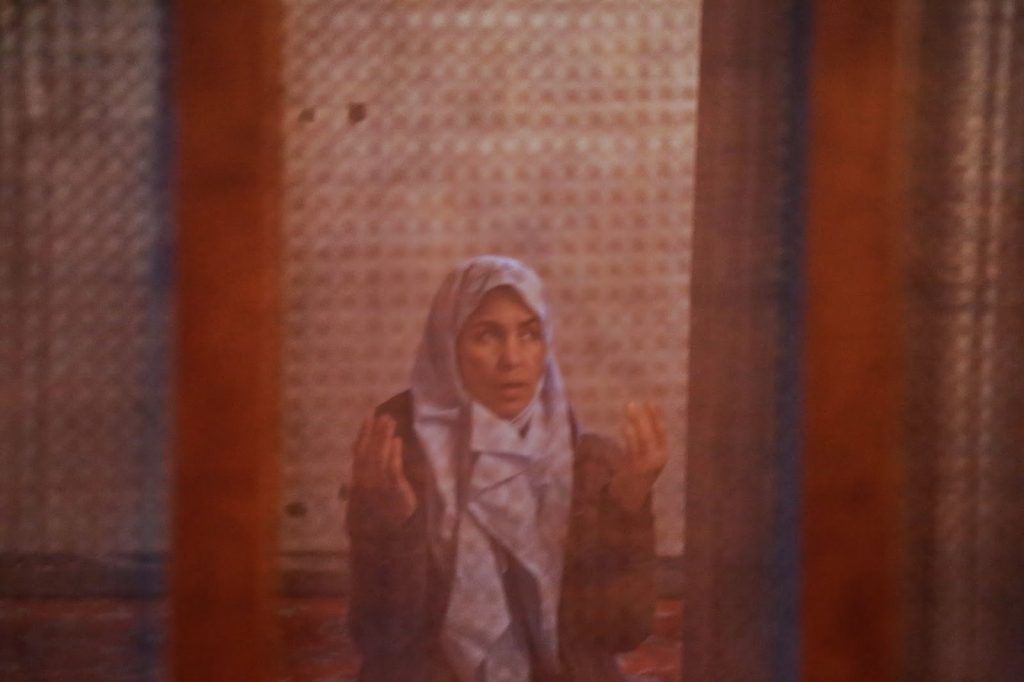
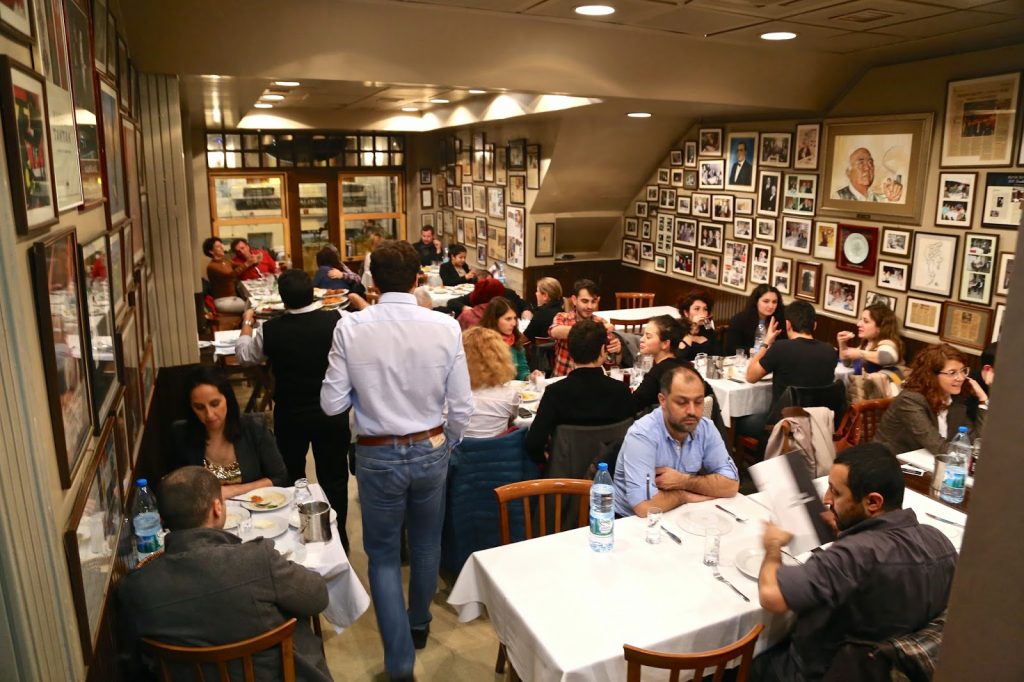
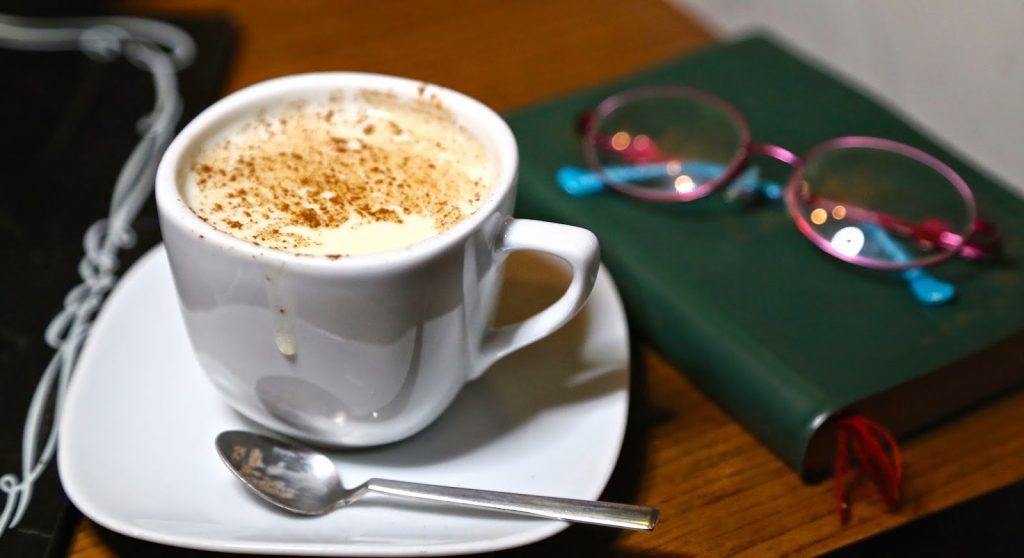
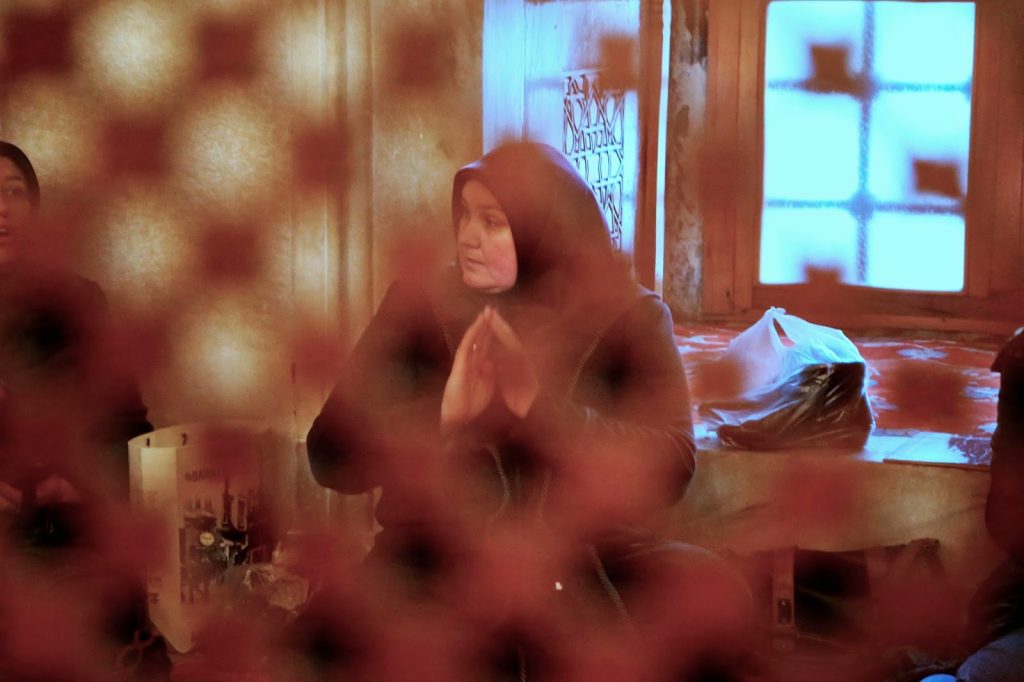
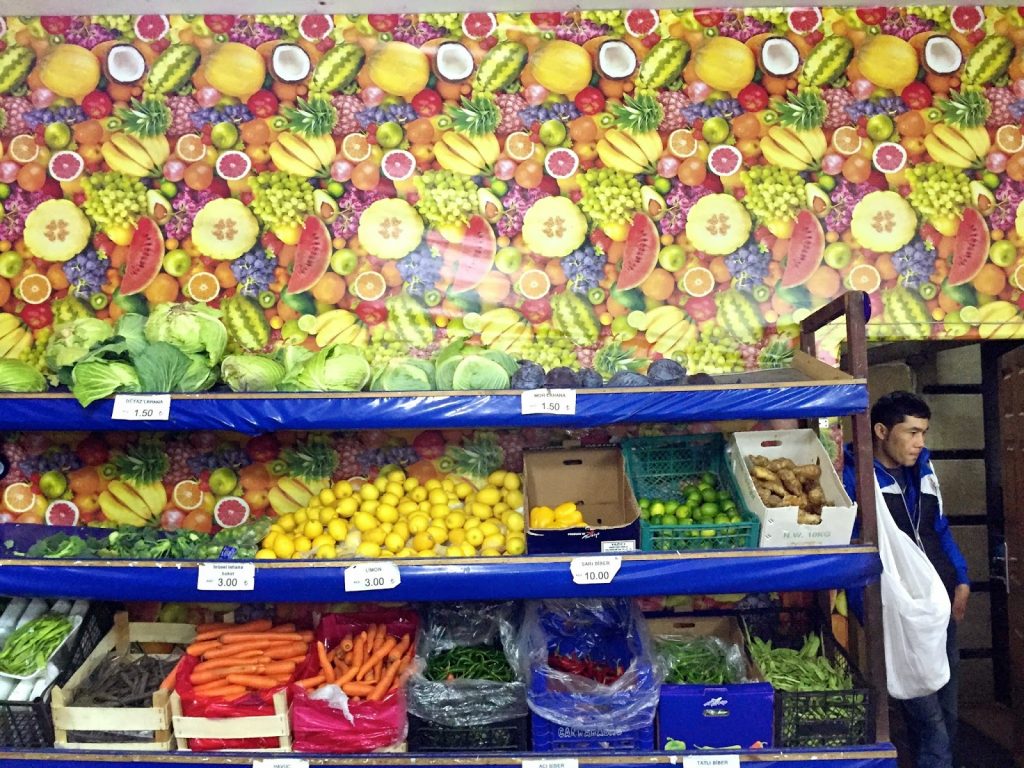
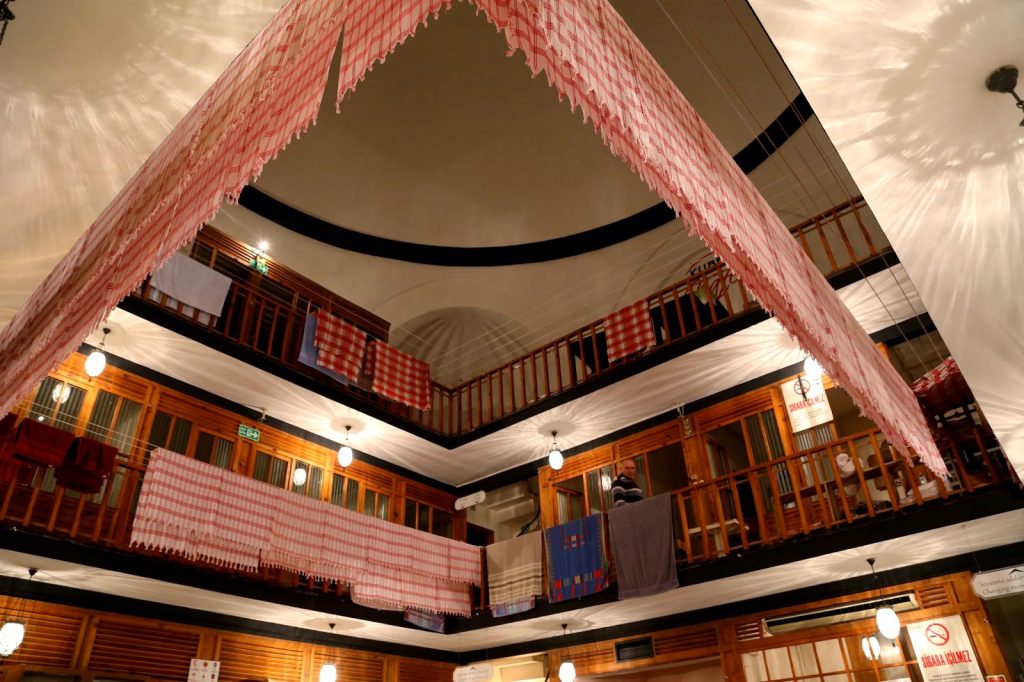
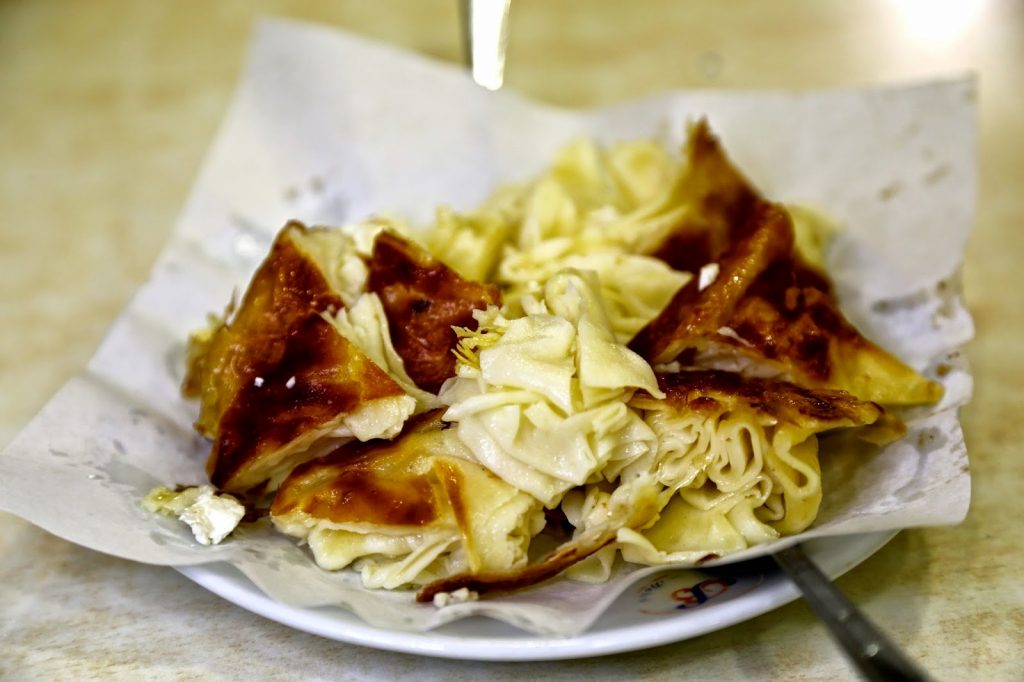



I love Istanbul, it is one of my favorite cities in the world, and the food there just blows your mind. I hope you enjoy the rest of the stay!
I've been a bit slow getting off the ground with this trip, Istanbul is dizzying and it's easy to get lost!
aww makes me feel a little homesick food wise, I come from Australia with some amazing Turkish shops and cafes…Would love to visit Istanbul
We have a lot in London too, Stoke Newington you can see the gozme in the first picture, being made…would love to visit Australia!
What an evocative account! Thank you!
Thank you Jill x
Love your writing ?/ The swedish woman
Thank you Tessa xx